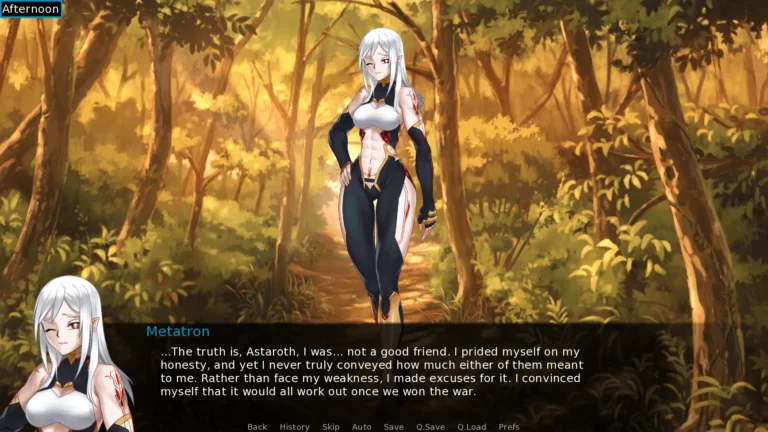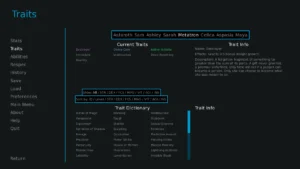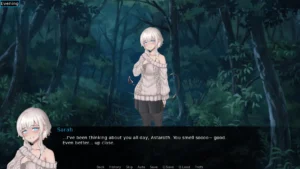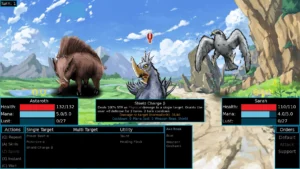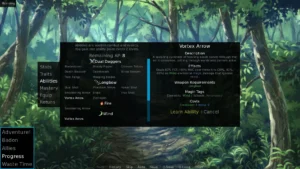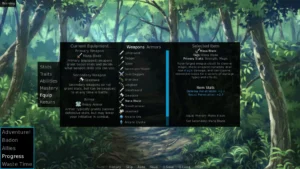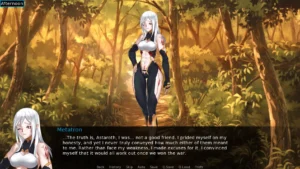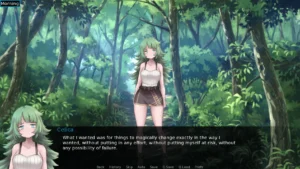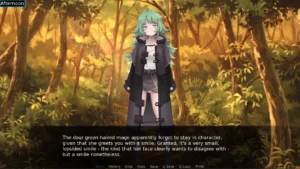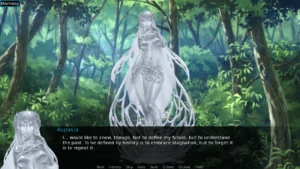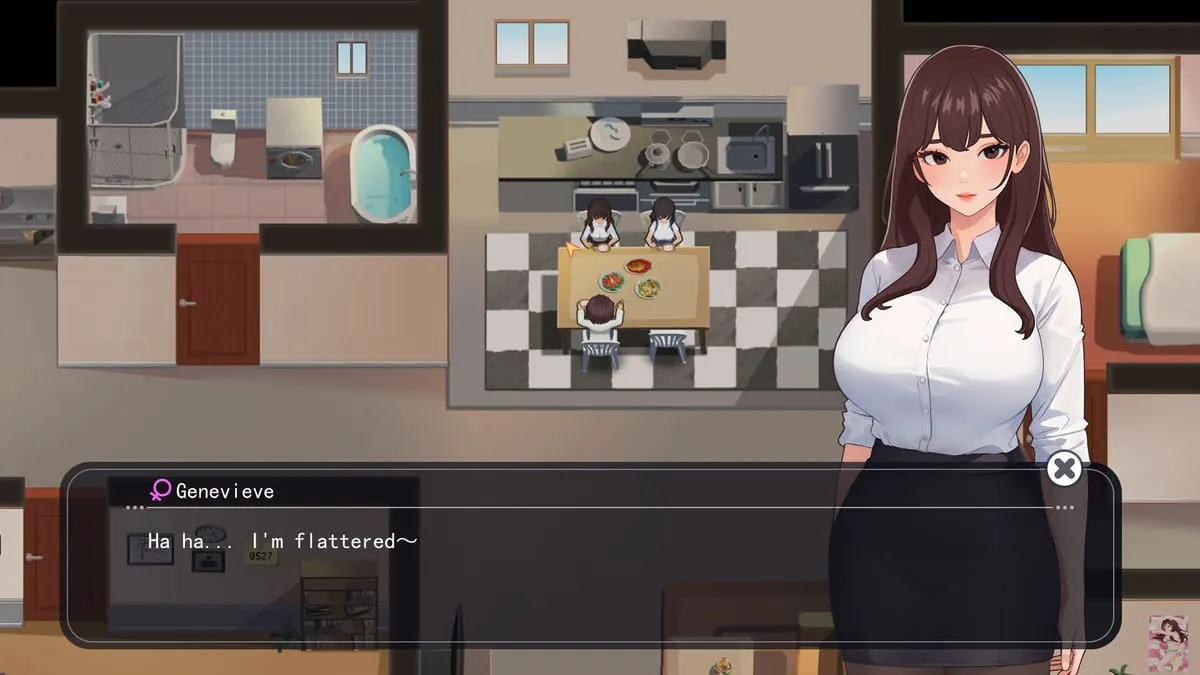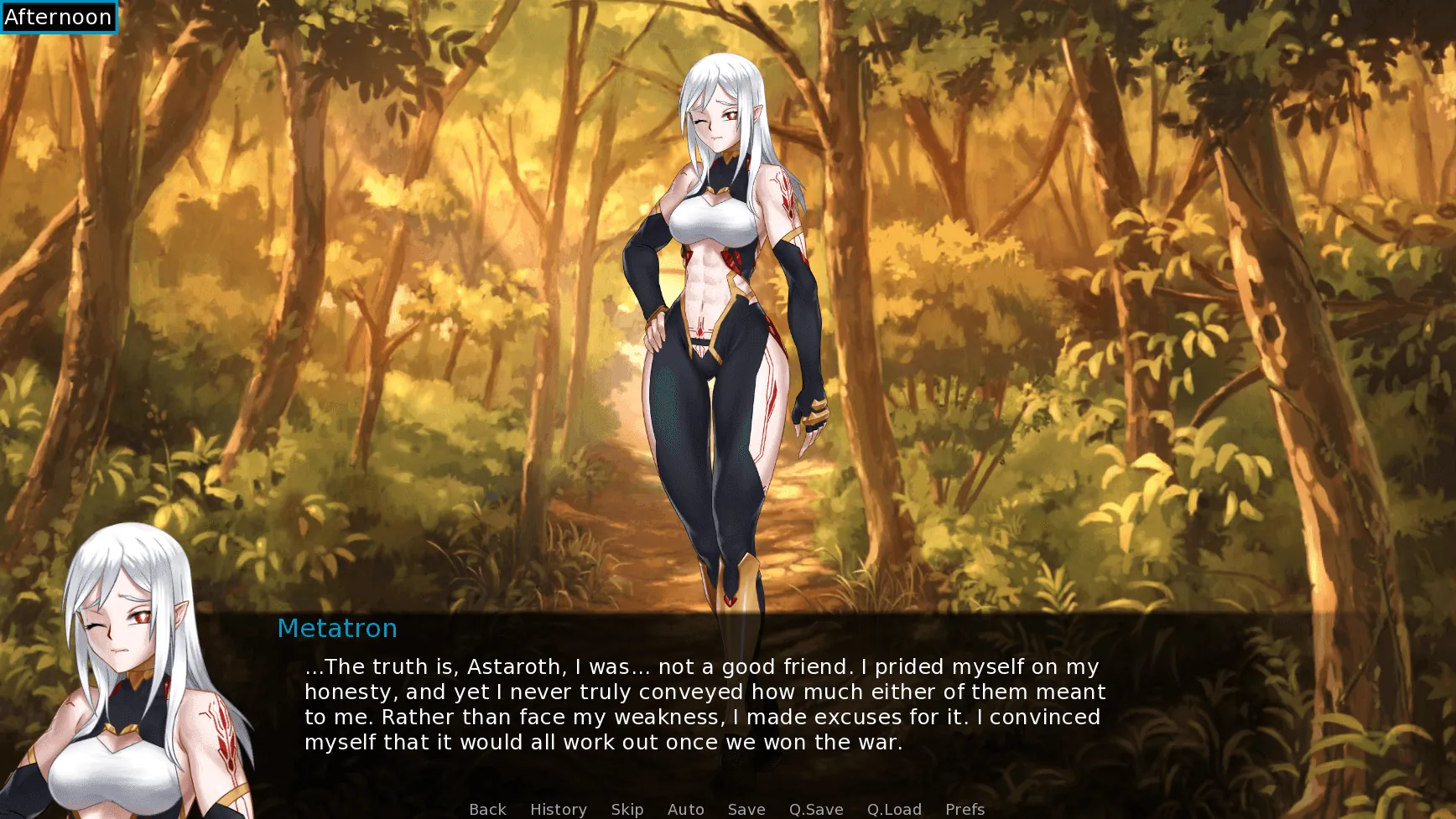
Divine Dawn
Play Divine Dawn
Divine Dawn review
Exploring the gameplay, story, and features of Divine Dawn
Divine Dawn is a turn-based RPG that blends engaging gameplay with a richly woven narrative and erotic themes. This game stands out by combining strategic progression with a sex-positive storyline, making it a unique experience for players who enjoy adult-themed interactive storytelling. In this article, we’ll dive into what makes Divine Dawn compelling, from its character development to its world-building and gameplay mechanics.
Gameplay and Mechanics of Divine Dawn
Let me tell you about the moment I fell in love with Divine Dawn gameplay. I’d just spent an hour carefully building my character, a cunning rogue with a mysterious past, and was immediately swept into its rich narrative. But soon, I faced my first real battle. I was worried the combat would be a simple, mindless affair, a boring interruption to the story. Boy, was I wrong. 🎮 The Divine Dawn combat system isn’t just a side activity; it’s the pulsating heart of the entire experience, a deep and strategic challenge that had me leaning forward in my chair, completely hooked.
This is the magic of Divine Dawn. It understands that for a role-playing game to truly captivate, its mechanics must be as compelling as its plot. The turn-based RPG mechanics here are not an afterthought; they are a core pillar of the design, intricately woven into the fabric of the world and your progression through it. If you’re looking for a game that respects your intelligence and rewards careful planning, you’ve found it.
Turn-Based Combat System Explained
Forget about button-mashing. The combat system in Divine Dawn is a elegant dance of strategy and anticipation. It’s a classic turn-based format, but with layers of tactical depth that unfold as you play. Each character in your party, and every enemy you face, has an initiative value that determines the turn order. This simple fact alone forces you to think several moves ahead. 🧠
What truly sets it apart are the synergy skills. I learned this the hard way during a boss fight in a forgotten temple. My tank was taking a beating, and my healer’s main spell was on cooldown. In a moment of desperation, I paired my mage’s “Frost Nova” with my rogue’s “Flurry of Blades.” The result? A devastating “Shattered Steel” combo that not only dealt massive damage but also applied a defense debuff to the boss, turning the tide of the battle. It was a genuine “aha!” moment that made me appreciate the game’s brilliant design. ✨
Positioning is another crucial layer. The battlefield is a grid, and flanking an enemy or keeping your spellcasters in the back row isn’t just a suggestion—it’s a matter of life and death. Enemies will exploit weak formations, so you must constantly adapt. This adds a fantastic spatial element to the strategy in Divine Dawn, making every encounter a unique puzzle.
Here’s a quick breakdown of some core combat actions and their strategic importance:
| Action | Primary Effect | Strategic Consideration |
|---|---|---|
| Precise Strike | High single-target damage | Best for eliminating key threats quickly; uses more Action Points. |
| Guard Stance | Greatly increases defense for one turn | Essential for protecting a low-health ally or weathering a powerful enemy attack. |
| Elemental Infusion | Imbues weapon with a specific element | Crucial for exploiting enemy weaknesses; sets up powerful combo attacks with mages. |
| Taunt | Forces enemies to target the user | The cornerstone of controlling the flow of battle and protecting your damage dealers. |
🔥 The key takeaway? You can’t just spam your strongest attack. The Divine Dawn gameplay loop in combat is about observation, prediction, and executing a plan that leverages your entire party’s strengths.
Character Progression and Customization
The strategic depth doesn’t end when the battle is over. In fact, that’s where another layer begins: the incredible character progression in Divine Dawn. This isn’t a simple linear path where you just pick a new skill every few levels. It’s a sprawling, open-ended system that truly lets you craft a unique hero. 🧩
When you level up, you earn two types of points: Skill Points and Attribute Points. Skill Points are spent in expansive talent trees that are unique to each character’s class. Do you want your warrior to be an unbreakable fortress, or a whirlwind of destruction? The choice is yours, and the RPG customization options are vast enough that no two warriors need to be the same. I restarted my first playthrough after about ten hours because I saw a friend use a build I hadn’t even considered—a support-focused battlemage who buffs allies while dealing area-of-effect damage. It completely changed my approach to the game!
Here’s a pro-tip from my experience: specialize, but don’t overspecialize. While focusing on one branch of the talent tree is powerful, I found that dipping a few points into a secondary tree for a key utility skill (like a self-heal or a movement ability) often provided more survivability and tactical flexibility than maxing out a single damage skill.
Your build directly shapes your strategy in Divine Dawn. A party of four pure damage dealers will get crushed. A balanced team with a tank, a healer, and two flexible damage/support hybrids, however, can handle any challenge the game throws at you.
The gear system complements this perfectly. Weapons and armor often have unique affixes that can fundamentally alter how a skill functions. Finding a ring that adds a lifesteal effect to my rogue’s basic attacks, for example, allowed me to play far more aggressively. This constant drip-feed of meaningful power spikes and build-altering gear makes the character progression Divine Dawn offers feel incredibly rewarding and personal. 💍
Balancing Story and Gameplay
This is where many narrative-driven games stumble, but Divine Dawn executes a masterful gameplay and story balance. The developers have woven the two together so seamlessly that they feel like two sides of the same coin. The choices you make in dialogue and the alliances you form don’t just change cutscenes; they have tangible consequences on the battlefield. 🤝
For instance, after completing a side quest where I helped a faction of arcane scholars, they granted me access to a unique vendor who sold powerful scrolls. These scrolls became a vital part of my combat strategy for the next several hours. Conversely, making an enemy of a mercenary group meant I started encountering specialized assassins in random battles who specifically targeted my backline. The world reacts to you, and the Divine Dawn gameplay is the medium for that reaction.
The game also avoids the common pitfall of letting one aspect overshadow the other. You’ll never go so long between battles that you forget the mechanics, nor will you ever be dragged into a tedious combat grind that pulls you out of the story. The pacing is impeccable. The intimate and mature narrative moments feel earned precisely because you’ve fought and strategized to reach them. The combat gives weight to the story, and the story gives context and emotional stakes to the combat.
Ultimately, the Divine Dawn gameplay is a triumph of design. Its turn-based RPG mechanics are deep and satisfying, its character progression system is empowering and vast, and its brilliant gameplay and story balance ensures you are always invested in both the journey and the fight. It’s a game that doesn’t just want to tell you a story; it wants you to live it, fight for it, and shape it with every strategic decision you make.
Divine Dawn offers a distinctive blend of turn-based RPG gameplay and an adult-themed narrative that is both engaging and thoughtfully crafted. Its character-driven story and strategic combat provide a satisfying experience for players seeking more than just typical game mechanics. Whether you are drawn by the story, the gameplay, or the unique atmosphere, Divine Dawn is worth exploring. Dive in and discover how this game balances depth and entertainment in a way few others do.
